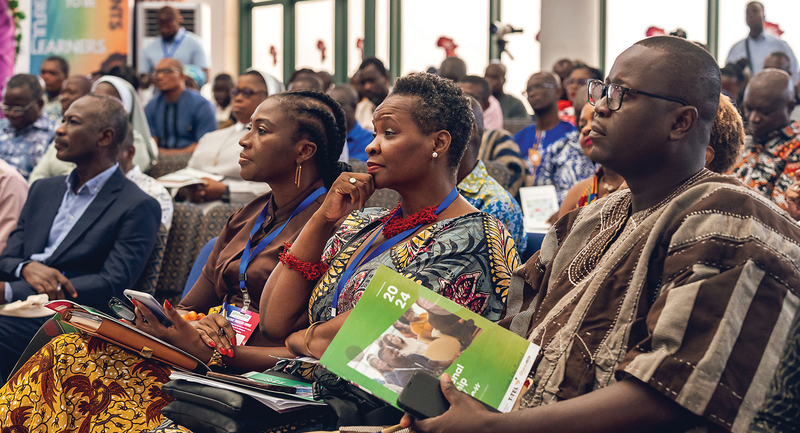The darkest days of the pandemic may soon be behind us, but new and perhaps even greater challenges are looming, including helping millions of students recover many months of lost learning while re-energizing (or replacing) thousands of exhausted teachers. Guiding people through uncertain times often requires a different, more empowering style of leadership. This may be a paradigm shift for many leaders, one that requires them to reflect on not only what they must do, but more deeply, who they must be as leaders.
Over the years, research has surfaced two distinctly different styles of leadership. More conventional, transactional leadership works from the outside-in—creating expectations, assigning roles and responsibilities, and establishing and ensuring compliance with processes. Transformational leadership, on the other hand, works from the inside-out—instilling aspirational goals and vision, creating a collective sense of purpose, defining collaborative goals, and encouraging risk-taking, continuous learning, and self-reflection (Lyons & Schneider, 2009).
While both styles have their place and purpose, transformational leadership supports better team performance in many ways. For example, in a laboratory experiment with 214 adults, participants received directions for completing a complex task from three different styles of "leaders" (actors evoking transactional, transformational, and laissez-faire leadership styles). Those who received directions via transformational leadership styles reported greater feelings of efficacy, more social support, and less stress; most important, they performed better on the task (Lyons & Schneider, 2009). Those who received marching orders from leaders with no-nonsense, let's-get-to-work transactional styles reported less confidence, higher stress, and less social cohesion—and performed worse on the task.
We're referring here to leadership styles, not people; so, leaders can (and should) shift between styles based on the current needs of the organization. Nonetheless, leaders who are more adept with transformational styles often share the same core beliefs and dispositions, which suggests the following touchpoints for empowering others.
Believe in Yourself and Others
Perhaps the most important trait for any leader is self-efficacy—believing they can have a positive impact on the world around them. Research dating back to the 1970s (e.g., Anderson & Schneier, 1978) has, in fact, shown that teams led by those with self-efficacy or an internal locus of control—leaders who believe their own actions (not external forces) control their life's outcomes—outperform teams led by those who tend to blame others or extenuating circumstances for poor outcomes.
A comparison study of 20 principals—10 who were successfully turning around low-performing schools and 10 who were not—identified internal locus of control as a key differentiator between effective and ineffective leaders (Bournés, 2017). Unlike "externals" who tended to attribute school performance to lack of resources, slow-moving district bureaucracies, or students themselves, "internals" were more apt to exert control over their environments—pushing back against counterproductive district mandates, asserting control over curricular decisions, and being a "squeaky wheel" to secure resources needed for their schools.
Be Optimistic
Leaders' optimism is often rooted in seeing assets where others see only deficits. A study of principals from five, high-performing, high-poverty schools in South Africa found they all shared an asset-based orientation to their work and schools. They weren't pollyanna-ish; they acknowledged the poverty around them. Yet they identified and drew upon strengths, capabilities, and insights from their communities and found ways to build on bright spots in their schools (Chikoko, Naicker, & Mthiyane, 2015).
Care About Others
A longitudinal study of 400 Chicago schools found that the most important predictor of sustained school improvement was "relational trust"—the extent to which everyone in the school community shared a sense of moral obligation, mutual respect, and reliance on one another (Bryk & Schneider, 2003). Trust developed slowly over time—the cumulative effect of multiple positive conversations, interactions, and observations that made people feel heard, respected, and valued.
Here again, trust emerged from principals who genuinely cared about others, earned their respect by holding others in high regard, and demonstrated integrity by treating others fairly. They didn't shy away from tough or unpopular decisions; to the contrary, many made tough decisions to remove problematic teachers. But they did so with integrity, impartiality, and compassion.
Know Thyself
Research also links transformational leadership behaviors to "emotional intelligence"—the ability to understand our emotions, see ourselves as others do, and adjust our behaviors accordingly (Barling, Slater, & Kelloway, 2000). A study of 72 high school principals (Hanlin, 2004) found a strong link between emotional intelligence and several responsibilities associated with effective leadership identified in a McREL International meta-analysis (Waters, Marzano, & McNulty, 2003). In particular, leaders' self-awareness (the ability to identify and understand their own emotions) was strongly linked to their focus (establishing clear goals and keeping them at the forefront of a school's attention), intellectual stimulation (keeping staff informed about research and best practices), monitoring (assessing the impact of improvement efforts on student outcomes), and situational awareness (sensing undercurrents in the school and addressing them quickly). Effective leaders appear to be reflective leaders.
Balancing Leadership
Transactional and transformational leadership are not mutually exclusive; transactional leadership, in fact, often serves as a foundation for transformational leadership. Even in challenging times, leaders still need to set expectations, define roles, and implement plans well. But they should also incorporate behaviors that encourage can-do optimism, trust, and self-reflection. Likely, doing so starts by looking within to ensure they are the change they want to see in their schools.









